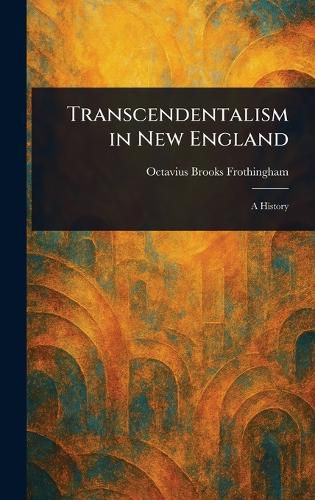Readings Newsletter
Become a Readings Member to make your shopping experience even easier.
Sign in or sign up for free!
You’re not far away from qualifying for FREE standard shipping within Australia
You’ve qualified for FREE standard shipping within Australia
The cart is loading…






This title is printed to order. This book may have been self-published. If so, we cannot guarantee the quality of the content. In the main most books will have gone through the editing process however some may not. We therefore suggest that you be aware of this before ordering this book. If in doubt check either the author or publisher’s details as we are unable to accept any returns unless they are faulty. Please contact us if you have any questions.
Octavius Brooks Frothingham's "Transcendentalism in New England: A History" explores the philosophical and religious movement that profoundly shaped 19th-century America. Delving into the heart of New England's intellectual landscape, this historical account meticulously traces the origins, development, and impact of Transcendentalism.
Frothingham examines the key figures, ideas, and social forces that fueled this influential school of thought, which challenged conventional religious and philosophical norms. The book provides valuable insights into the movement's core tenets, including its emphasis on individual intuition, the inherent goodness of humanity, and the importance of living in harmony with nature.
A significant contribution to the study of American history and religious history, "Transcendentalism in New England" offers a comprehensive overview of this pivotal era. Readers interested in philosophy, particularly the Transcendentalist movement, will find this a rich and insightful resource, exploring a defining chapter in the nation's intellectual past.
This work has been selected by scholars as being culturally important, and is part of the knowledge base of civilization as we know it.
This work is in the public domain in the United States of America, and possibly other nations. Within the United States, you may freely copy and distribute this work, as no entity (individual or corporate) has a copyright on the body of the work.
Scholars believe, and we concur, that this work is important enough to be preserved, reproduced, and made generally available to the public. We appreciate your support of the preservation process, and thank you for being an important part of keeping this knowledge alive and relevant.
$9.00 standard shipping within Australia
FREE standard shipping within Australia for orders over $100.00
Express & International shipping calculated at checkout
This title is printed to order. This book may have been self-published. If so, we cannot guarantee the quality of the content. In the main most books will have gone through the editing process however some may not. We therefore suggest that you be aware of this before ordering this book. If in doubt check either the author or publisher’s details as we are unable to accept any returns unless they are faulty. Please contact us if you have any questions.
Octavius Brooks Frothingham's "Transcendentalism in New England: A History" explores the philosophical and religious movement that profoundly shaped 19th-century America. Delving into the heart of New England's intellectual landscape, this historical account meticulously traces the origins, development, and impact of Transcendentalism.
Frothingham examines the key figures, ideas, and social forces that fueled this influential school of thought, which challenged conventional religious and philosophical norms. The book provides valuable insights into the movement's core tenets, including its emphasis on individual intuition, the inherent goodness of humanity, and the importance of living in harmony with nature.
A significant contribution to the study of American history and religious history, "Transcendentalism in New England" offers a comprehensive overview of this pivotal era. Readers interested in philosophy, particularly the Transcendentalist movement, will find this a rich and insightful resource, exploring a defining chapter in the nation's intellectual past.
This work has been selected by scholars as being culturally important, and is part of the knowledge base of civilization as we know it.
This work is in the public domain in the United States of America, and possibly other nations. Within the United States, you may freely copy and distribute this work, as no entity (individual or corporate) has a copyright on the body of the work.
Scholars believe, and we concur, that this work is important enough to be preserved, reproduced, and made generally available to the public. We appreciate your support of the preservation process, and thank you for being an important part of keeping this knowledge alive and relevant.